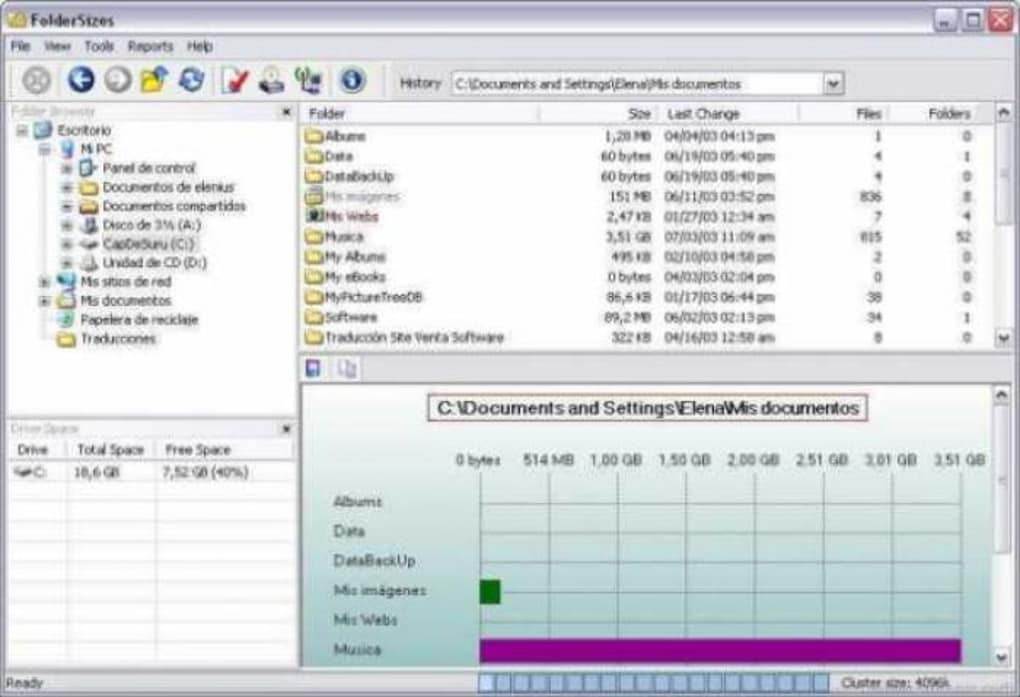

– FilterZip regular-expression based compression system – Command line interface for scripting & integration (Pro edition only) – View local & network disk space usage by owner / group – View disk space utilization by file type / attributes – Isolate largest, oldest, duplicate, and temporary files – Fast, multi-threaded, network-aware file system scanning – Interactive, dynamic, full-color bar and pie graphs – Integrated scheduler (Pro edition only) – Hierarchical folder map visualization (based upon treemap technology) – Schedule the generation of nearly any FolderSizes report (Pro edition only) – Search files by nearly any file attribute combination – Visualize the distribution of files by file type, age, and size – View the “size on disk” (actual space consumed) for any file or folder – Find files owned by a specific individual or group – Find recently saved files without knowing their names (find recently modified)

– Find excessively long file names that interfere with CD storage, etc. – Monitor and enforce employee data storage policies – Streamline file systems to optimize backups – Publish disk usage reports right to your web server share – Manage and monitor disk space across the network (Pro edition only) – Find the disk space hogs with just a few clicks – Improve storage capacity planning capability – Reclaim gigabytes of drive space – fast! – Explore, visualize, and comprehend local and network storage All with multiple export formats, command-line support, shell context menu integration, and much more. It can quickly isolate large, old, temporary, and duplicate files, or even show file distribution by type, attributes, or owner. FolderSizes is an award-winning, network-enabled disk space analysis tool. You need a visual, interactive software tool to help you manage disk usage. Before you know it, you’re out of drive space, backups are taking far too long to run, and users can’t find the data they need when they need it. FolderSizes v9.5.421 Enterprise Edition Portable ĭesktop PCs and servers can quickly end up accumulating large quantities of unused, temporary, and duplicate files.


 0 kommentar(er)
0 kommentar(er)
